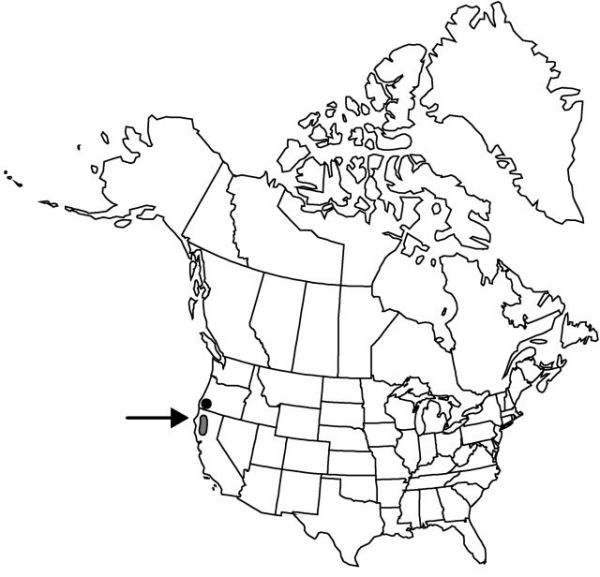Difference between revisions of "Fritillaria purdyi"
Bull. Torrey Bot. Club 29: 75, plate 6. 1902.
Common names: Purdy’s fritillary
Endemic
imported>Volume Importer |
imported>Volume Importer |
||
| Line 50: | Line 50: | ||
|publication year=1902 | |publication year=1902 | ||
|special status=Endemic | |special status=Endemic | ||
| − | |source xml=https:// | + | |source xml=https://bitbucket.org/aafc-mbb/fna-data-curation/src/2e0870ddd59836b60bcf96646a41e87ea5a5943a/coarse_grained_fna_xml/V26/V26_297.xml |
|genus=Fritillaria | |genus=Fritillaria | ||
|species=Fritillaria purdyi | |species=Fritillaria purdyi | ||
Latest revision as of 22:14, 5 November 2020
Bulb scales: large 2–8; small 0–3. Stem 1–4 dm. Leaves 2–10, alternate, ± crowded near ground, 2.5–10 cm; blade ovate, occasionally a few sickle-shaped. Flowers horizontal or nodding; tepals white, with purple spots or lines and pink shading, 1.5–3 cm, apex often slightly recurved; nectaries obscure, colored like tepals, broadly linear, ± equaling tepal length; style obviously branched for 1/2 its length, branches longer than 1.5 mm. Capsules acutely angled. 2n = 24.
Phenology: Flowering Apr–Jun.
Habitat: Dry ridges, generally on serpentine
Elevation: 400–2100 m
Discussion
Selected References
None.
Lower Taxa
None.
